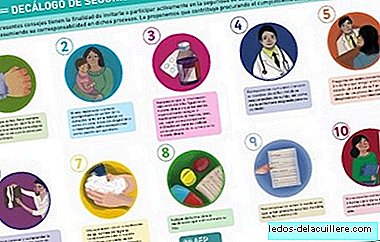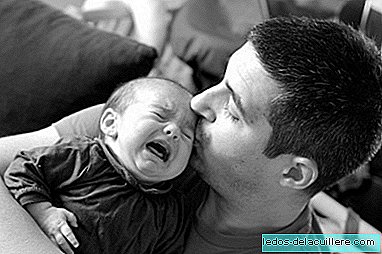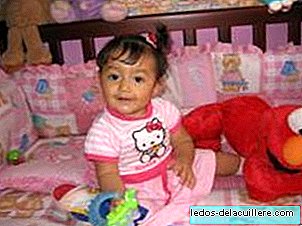
The Working Group on Healthcare Quality and Patient Safety of the Spanish Association of Pediatrics, has developed a series of tips that invite parents to actively participate in the safety of their children during all phases of health care they receive because of illness or accidents.
It is especially important that in hospitals each one assumes his or her share of responsibility in the process, therefore are detailed in the form of a decalogue Measures such as identification bracelets, accompany children at all times, or fluid communication with health professionals.
The objective is to avoid risks for children, by complying with the following points (we transcribe literally):
Make sure that your child always wears the identification bracelet, if it should be removed for any technique, insist that it be placed on the other arm.
The child must always be accompanied by a family member or caregiver, both in the room and in other areas of diagnosis or treatment, with exceptions such as an operating room.
Make sure the relevant information of the child appears in his medical record and that alerts, especially allergies to medications, food, latex, etc. They are conveniently indicated on visible signs at the head of the bed and in the medical record.
It is important that you know the name of the doctor (s) responsible for your child, as well as the nurse assigned for your care.
Ask without restrictions all doubts you have about your child's health status as well as diagnostic procedures and treatments.
It is necessary to insist on the fulfillment of the norms of hygiene, fundamentally the washing of hands, on the part of the companions, visits and sanitary personnel.
Clearly indicate the medication your child is taking.
Ask for information about the medication your child has been prescribed: name, dose, frequency and route.
Do not leave the hospital without a clear report of your care and therapeutic recommendations at discharge.
You should know and understand the disease and the existing treatment options as well as the possible complications and their treatments. The doctor and the nurse will explain it to you in proper and understandable language.
This decalogue is also available in poster format, and can be downloaded from here.
I think it is important to disseminate these tips, as it is that from health institutions family participation is facilitated. Since it makes no sense (for example) to ask for the accompaniment of a family member in any area (except perhaps in the operating room), and then we encounter situations such as that caused at the Hospital de León, where parents cannot accompany the Children in the pediatric ICU.












